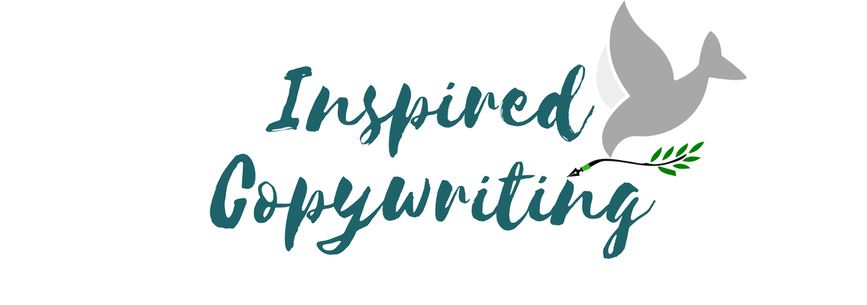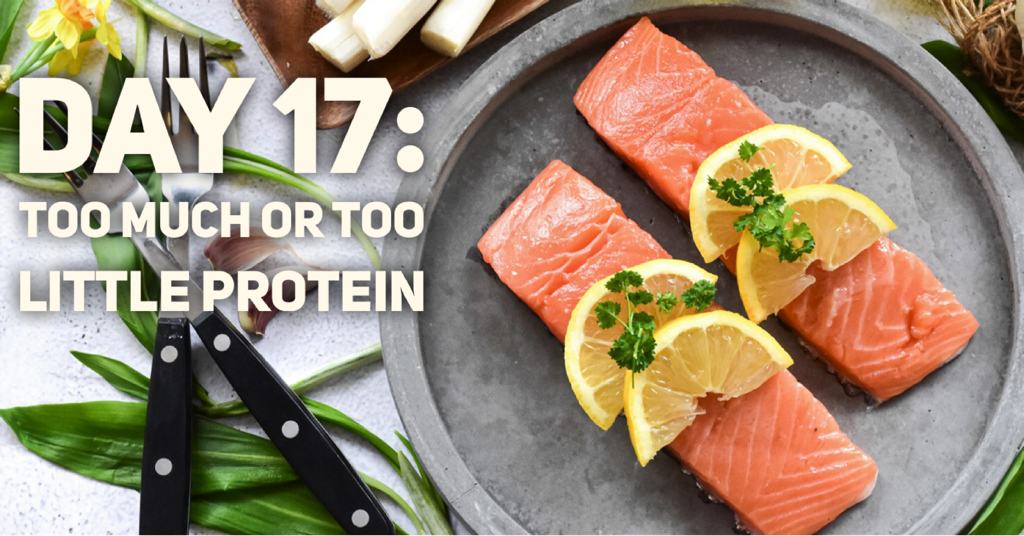Day 17: Too Much or Too Little Protein
Our body thrives on moderation.
The dietary recommendation for protein intake for an average adult is 0.8 gm/kg of body weight or just 10-15% of total calories. Like carbohydrates, one gram of protein will provide us with 4 kilocalories.
Too much protein can be taxing to the kidneys. People with renal disease or renal failure are advised to lower their protein intake to less than 0.8 gm/kg of body weight. But for those undergoing dialysis, their protein requirement increases.
Protein is not stored as amino acid but instead undergoes metabolism. You don’t get big muscles simply by eating a high protein diet. The body builds muscle through exercise (the stimulus to muscle building) and eating good sources of protein. People who are in the older age group may experience sarcopenia (muscle loss) when they don’t have enough weight-bearing exercises.
People who don’t eat enough carbohydrates and protein will show signs of energy-protein deficiency like low levels of albumin, total lymphocyte count, and serum transferrin. But you will only see this kind of deficiency in those who starve themselves. The body’s usual compensatory mechanism when there isn’t enough source of energy is to break down glycogen (storage form of sugar) from the liver and muscle, and when these are consumed, the body breaks down fat. When in prolonged starvation mode, muscle is lost.
Protein is typically found in most foods like whole grains, nuts (almond, pecan, cashew, etc), and legumes (peas, soy, peanuts, beans, etc). Some foods have more bioavailable protein than others.
A balanced diet and choosing lean sources of protein and whole plant-based foods that provide complementary protein should be able to meet the minimum protein requirement.
The dietary recommendation for protein intake for an average adult is 0.8 gm/kg of body weight or just 10-15% of total calories. Like carbohydrates, one gram of protein will provide us with 4 kilocalories.
Too much protein can be taxing to the kidneys. People with renal disease or renal failure are advised to lower their protein intake to less than 0.8 gm/kg of body weight. But for those undergoing dialysis, their protein requirement increases.
Protein is not stored as amino acid but instead undergoes metabolism. You don’t get big muscles simply by eating a high protein diet. The body builds muscle through exercise (the stimulus to muscle building) and eating good sources of protein. People who are in the older age group may experience sarcopenia (muscle loss) when they don’t have enough weight-bearing exercises.
People who don’t eat enough carbohydrates and protein will show signs of energy-protein deficiency like low levels of albumin, total lymphocyte count, and serum transferrin. But you will only see this kind of deficiency in those who starve themselves. The body’s usual compensatory mechanism when there isn’t enough source of energy is to break down glycogen (storage form of sugar) from the liver and muscle, and when these are consumed, the body breaks down fat. When in prolonged starvation mode, muscle is lost.
Protein is typically found in most foods like whole grains, nuts (almond, pecan, cashew, etc), and legumes (peas, soy, peanuts, beans, etc). Some foods have more bioavailable protein than others.
A balanced diet and choosing lean sources of protein and whole plant-based foods that provide complementary protein should be able to meet the minimum protein requirement.
PROTEIN CHALLENGE #3
Snack on plant-based protein sources like legumes (roasted chickpeas
or boiled peanuts) and tree nuts (pistachios, walnuts, almonds, etc) instead of your usual chips and sweets.

